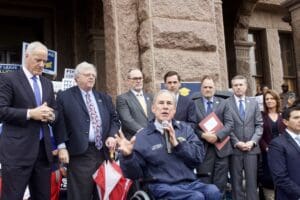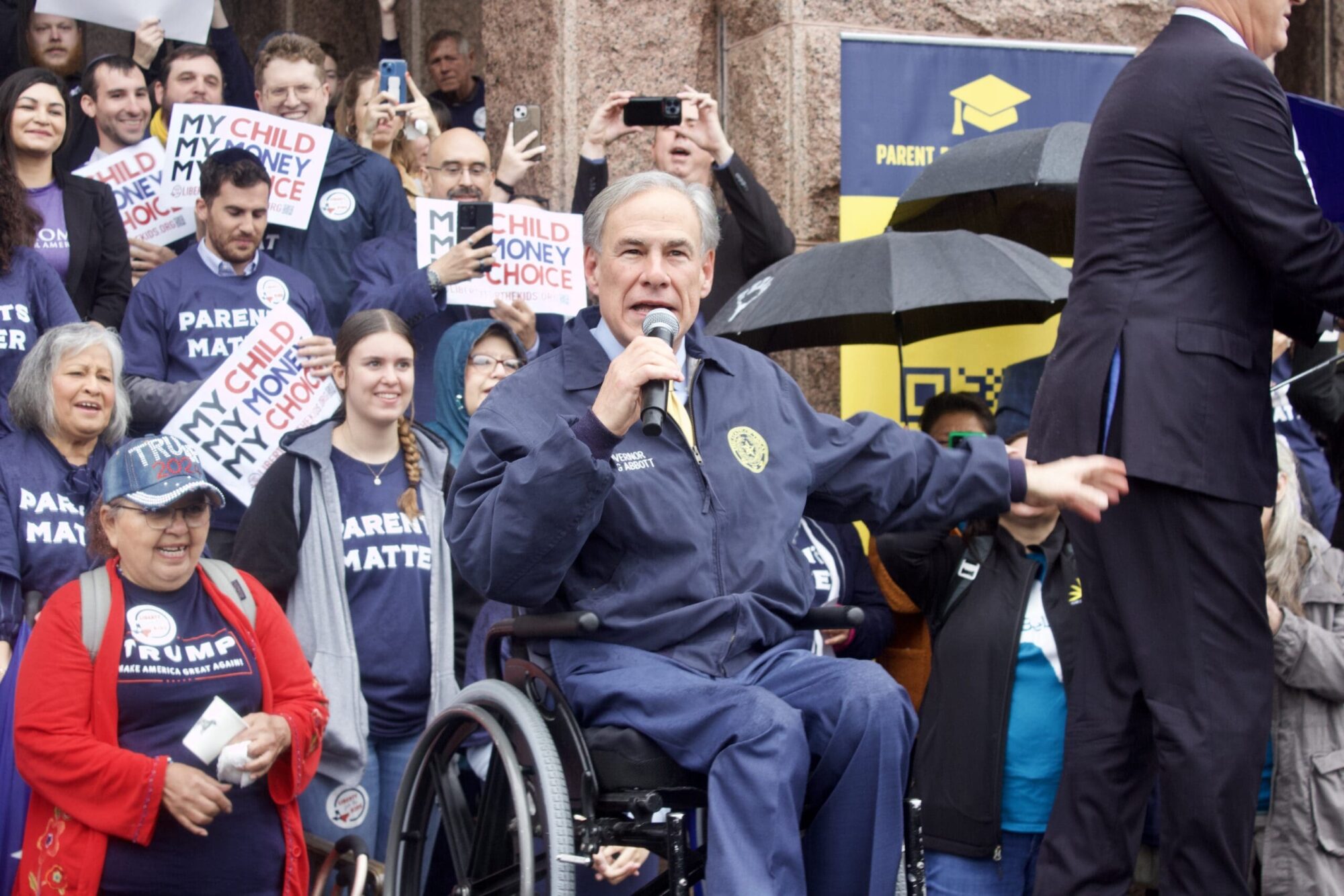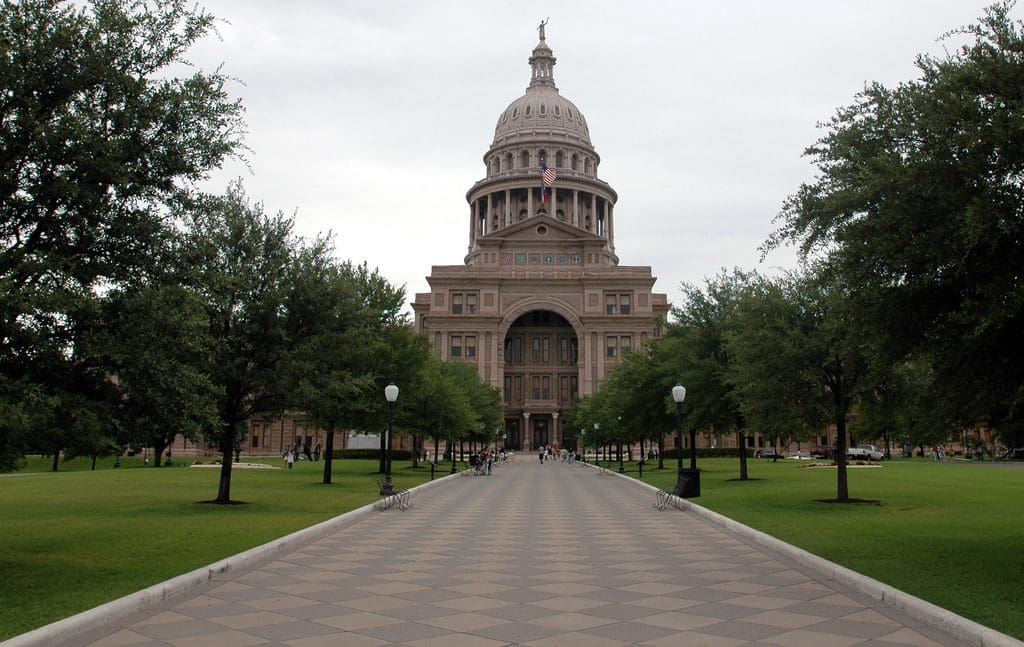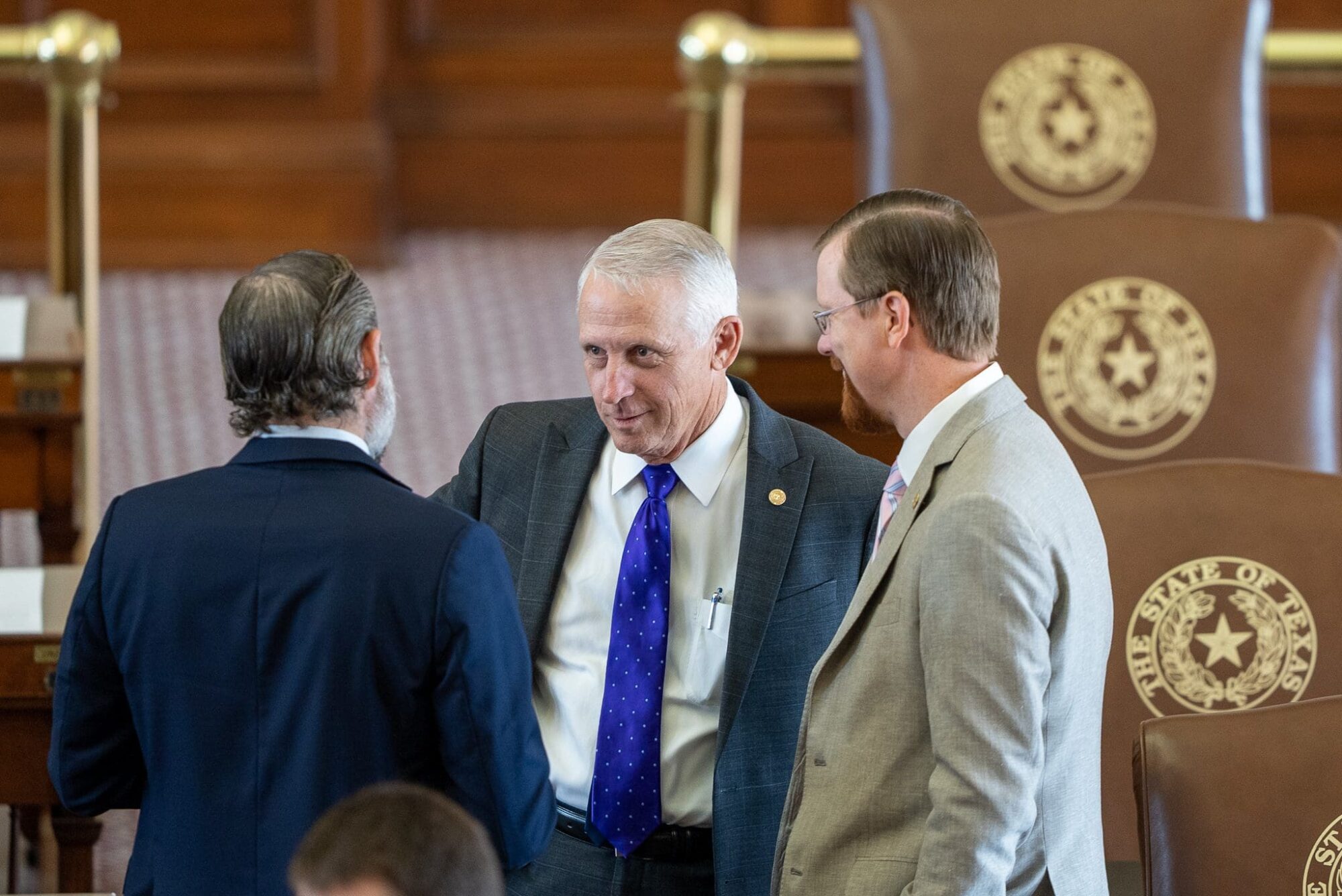AUSTIN — Hundreds of parents, grandparents, and students gathered at the steps of the Texas Capitol to show support for school choice on Tuesday.
Texas Gov. Greg Abbott spoke to the crowd outside the Capitol for the Texas Public Policy Foundation’s Parent Empowerment Day alongside State Sens. Paul Bettencourt (R–Houston), Mayes Middleton (R–Galveston), Kevin Sparks (R–Midland), Angela Paxton (R–McKinney), and State Reps. James Frank (R–Wichita Falls), Steve Toth (R–The Woodlands), and Brian Harrison (R–Midlothian).

“We’re going to show up, we’re going to show out, and we’re going to show the Legislature exactly why it’s so important that we empower parents to choose the education that’s best for their child,” said Abbott.
Abbott addressed some of the arguments against school choice, including the idea that school choice will defund public schools and lower educational standards.
“We are actually adding more money to schools than ever before,” said Abbott, adding that “whenever school choice is used, public education improves.”
School choice is popular with parents across the political spectrum as COVID-19 shed light on many issues within the public school system. Abbott called on parents to stand with him and voice their opinions on school choice to their elected representatives.

“It takes five minutes of your time and that’s all to change the world,” said Abbott. “You need to call your state representative, your state senator, and let them know you support school choice.”
“It’s important to show lawmakers the parental support for universal school choice,” school choice advocates and parents Josh and Cassandra Posey told Texas Scorecard. “Families of diverse communities, faiths, and political parties came together today to show unity for the same cause. Innovative change is what’s needed to break the cycle, and we see precedent for it around the nation.”
“We are fighting for our kids and our grandkids, all children in our state, and especially for the parents who can’t afford to take time off to be here,” said Cassandra.
“I attended the school choice rally because our public schools are failing our children, and there is currently no incentive for districts to change,” Jill Farris, who is a resident in scandal-plagued Round Rock ISD told Texas Scorecard. “Schools are using our money to fight against us, to indoctrinate our children, and expose them to inappropriate things. Sadly, none of that will change unless we are able to take our children and our money out of these schools.”
Abbott has been promoting the concept of school choice for some time and endorsed education savings accounts as his preferred policy solution earlier this year.
Senate Bill 8 by State Sen. Brandon Creighton (R–Conroe) is the chamber’s priority school choice bill. It would create education saving accounts (individual state-funded accounts of $8,000 per child that families can use to pay for education expenses) to be managed by educational assistance organizations selected by the Texas comptroller.
However, many at the rally preferred State Sen. Mayes Middleton’s Senate Bill 176, which has been touted by national school choice advocate Corey DeAngelis.

The educational savings accounts created by Middleton’s bill would be managed by each participating student’s parents or guardians and would also provide more funding than Creighton’s, as the amount allotted per student is equivalent to the average cost incurred per student by Texas public schools each year (about $10,000).
The most significant difference between the two bills is the carveout for “rural districts” in SB 8, which stipulates that in school districts with fewer than 20,000 enrolled students, every student who transfers to the alternative state-funded program would obligate the state to reimburse the district to the tune of $10,000 (roughly equivalent to the average cost incurred per student by Texas public schools each year).
Interestingly, of the just over 1,000 public school districts throughout the state, 949 have fewer than 20,000 students, including the urban and exceedingly wealthy Prosper ISD, Lake Travis ISD, Alamo Heights ISD, and Highland Park ISD.
Both bills contain restrictions on which students are eligible to participate in the program. Middleton’s bill requires students to be enrolled in a public school and to have attended a public school for the entirety of the previous school year. Creighton’s bill, however, requires students to be enrolled in a public school or to have attended a public school for 90 percent of the previous school year.
House Speaker Dade Phelan (R–Beaumont) has not been nearly as outspoken as Abbott or Patrick on the issue of school choice, and none of his priority legislation pertains to the subject. Still, three House members have filed bills to create school choice programs, and the political momentum for expanding education options for Texas students has never been greater.
In response to a request by Creighton, Attorney General Ken Paxton recently released an advisory opinion stating there is no constitutional barrier to implementing school choice in Texas.
Senate Bill 8 and Senate Bill 176 are set to be heard in the Senate Education Committee on Wednesday, March 22.
No ads. No paywalls. No government grants. No corporate masters.
Just real news for real Texans.
Support Texas Scorecard to keep it that way!




